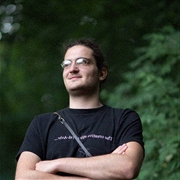Tutor HuntResources German Resources
What Is "hochdeutsch"?
Standard German?
Date : 03/01/2021
Author Information

Uploaded by : David
Uploaded on : 03/01/2021
Subject : German
When people learn German in School, they generally learn "Hochdeutsch" (en. High German), the most common variety of German. In reality, there are countless dialects in the different German speaking regions of Europe and often, even native speakers will have trouble to understand everything.What we consider standard German today first found its first origins with Martin Luther`s translation of the bible from Latin into German in 1522. He had the goal to make the bible more accessible to commoners and did not want it to be exclusive for Latin scholars. Thus, he used a combination of different Saxon dialects (today`s eastern central Germany), so that most German-speaking people could understand it, creating Middle High German.Around the year 1800, there already existed "Standard German", a mix of different Saxon dialects, but only as a written language, that most people had to learn as a second language. It would have been similar how it is in Switzerland today, where High German is the official language but most people speak their regional Dialect. With northern Germany being really powerful at the time, establishing trade routes through the North Sea and the Baltic, and the regional variety of "Lower German" (ger. Plattdeutsch) fading away, Standard German became more popular, because of the practicality of being able to communicate with more people. This northern German variety of Standard German is, what we call "Hochdeutsch" today.In today`s Germany, the dialects are still present, in some parts more than in others. Bavaria, as the most traditional and prestigious German State still has its regional dialects, that are still fairly popular and can not be understood by most Non-Bavarians. But in general, the dialects are fading away. Not being able to speak High German will often seem uneducated or uncultured, which is in my opinion the opposite of the truth. I think dialects are local treasures and say a lot about the cultural identity of a region.
This resource was uploaded by: David
